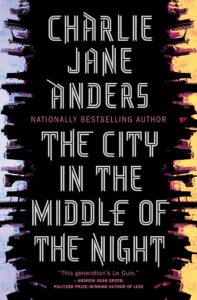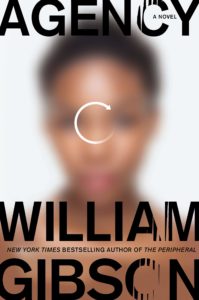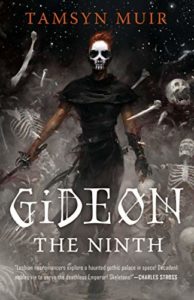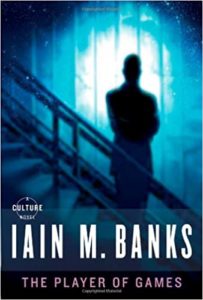 Sorry for the long delay, I guess sometimes “tomorrow” means “in over a week”!
Sorry for the long delay, I guess sometimes “tomorrow” means “in over a week”!
I.
Anyhow, yes, Emergency Skin is meant to be funny. I don’t think this should be controversial. I mean, there’s a dick joke in the first paragraph. Not only does the poor protag obviously not know what is desirable in a human body (long thighs?), but he’s being sold a long penis when we all know a long, thin penis is no one’s friend.
Most of the humor in the story is of this style – we see a naive protagonist being lied to by a narrator that is taking advantage of him. It’s a sort of comedy of errors, as we see a couple of complete idiots bumbling about in a Three Stooges-style fiasco, getting more and more wrapped up their buffoonery. Like, how can you not laugh at a society that thinks they’re The Best Evar but apparently hated women so much they replaced them all with “pleasurer robots?” Their entire society is so mentally and culturally deficient that it’s pretty clear that they were politely given the tech to leave by a humanity that really wanted them to move away, and they’ve lied to all their descendants claiming that they were so very smart that they found a way to leave the planet when no one else could. As if they’d had the capability to do cutting edge research, or accumulate vast wealth, with the three brain cells they had left. :D
Anyway, this would just be a straight-up farce if it was simply a depiction of this society of charicatures, but it turns into a satire when we see one of these flunkies coming back to Earth to interact with normal people. At that point, Emergency Skin reads very much like a take down of bad message fiction. It’s holding up a mirror to writers of bad message fic and saying “See, this is what you look like when you don’t do this well.” Writing good message fiction is a skill, and takes a lot of work. When it’s bad, it’s really bad. Satire can point this out via demonstration, and make us laugh along the way.
The really cool part of Emergency Skin is that you actually feel sympathy for the protag here, because he’s so niave and doesn’t know any better. He’s being used by the narator, and so we cheer when he sees through their lies and decides to go back and help his fellow citizens. There’s an actual good character arc, which is pretty unusual for a short satire piece.
II.
Poe’s Law is an artifact from the atheism wars on the early internet, which states that it is impossible to create a parody of extreme views so obviously exaggerated that it cannot be mistaken by some readers for a sincere expression of the views being parodied. No matter how ridiculous of a religious claim you made, someone would think it was serious, because why not? Religions are already looney toons. Religious people would often get upset about this, saying that it was plain freakin’ insulting that someone would say they couldn’t tell the difference between an absurd parody and a real religious claim. This sometimes resulted in hilarious own-goals, when it was discovered the original claimant was in fact a religious person expressing a sincere belief that the objecting theist had claimed was so ridiculous that only a liar trying to Own The Opposition would pretend to be confused whether it was a joke or not.
(Related fun study – some conservatives thought The Colbert Report was a pro-conservative show. From a study: “conservatives were more likely to report that Colbert only pretends to be joking and genuinely meant what he said while liberals were more likely to report that Colbert used satire and was not serious when offering political statements.”)
Which is to say that the meta punchline is Emergency Skin is being Poe’d. At least a couple people in our book club assumed Jemisin was writing this as a serious piece of anti-something propaganda. I’m not entirely sure what the “something” in this case is, but I think some combination of Billionaires, Capitalists, Whites, and Men. And, sure, those are all popular targets of the illiberal woke-ists out there. But I don’t think an objective reading of the story can support this.
III.
The story, as a satire, is pretty obviously about idiots the rest of humanity didn’t want to have around. They are shown to be a dysfunctional society brought to the brink of extinction due to their own mental, moral, and cultural failures. They’re just barely keeping old tech functioning, having to scavenge repair parts from Old Earth regularly. They are a fascist slave-owning society with dogma and philosophy completely inimicable to scientific advancement or functional capitalist systems. There is no way they got off Earth on their own. They were basically kicked off, and teach their descendants blatent lies. They do their best to hide these lies from the scavenger scout, but the truth is so blindingly apparent, and the society is so inept at even something as basic as lying, that the figleaf of falsehoods is blasted away immediately upon arrival.
The story, as serious criticism, is…. let’s say “problematic.” It’s the story of a minority group of humans. This minority group has distinct physical features (skin color, facial structure, hair) that make it obviously different from the rest of humanity. This minority group is also mentally, morally, and culturally retarded. Yet despite being vastly inferior to the rest of humanity, they have somehow insideously taken control of major power structures on Earth. In addition, they’ve tricked, defrauded, or outright stolen vast amounts of wealth from those who created it and should rightfully own it, and horde it for themselves. When the rest of humanity was in its most desperate situation, they stabbed humanity in the back and abandoned us, taking all their stolen wealth with them.
Basically, they’re 1930s Jews in Nazi propaganda.
What’s more, it turns out that once they were left to themselves, their true nature of theiving untermensch is revealed, and their new world collapses. Meanwhile, now that Earth is freed of their insidious leeching, Earth flourishes, and ushers in a New Golden Age where everyone has plenty and there is no more strife. By extension, the reader is left to wonder that if only… IF ONLY this vile minority of sub-humans could somehow be removed from the planet everything would be sunshine and roses.
So, yeah. I know this is combining Poe’s Law with Godwin’s Law, but reading this as a serious work of modern cultural criticism, one would be forced to say that Jemisin basically recreated the worst kind of exterminationist Nazi propaganda. And, to be quite honest, I don’t think that’s remotely plausible. It’s as silly as saying Colbert is a secret Republican, or Obama is a secret Muslim, or Scott Alexander is a secret Nazi.
And come on! This is a story that includes lines like “Beautiful? That’s… You’re only saying that beacuse they have skin.” Or “They want everything for everyone and look at where it’s gotten them! Half of them aren’t even men.” These are jokes, and pretty good ones!
Also, would an author that seriously embraced that sort of ideology be one of only two (of the twelve short work authors) who didn’t make the story available freely to all? And be the only author who made the story available ONLY at Amazon, so people are forced to give their money to the boogeyman of the leftists? I had to install a Kindle app to read this, I don’t think anti-capitalism is a driving value here. :)













